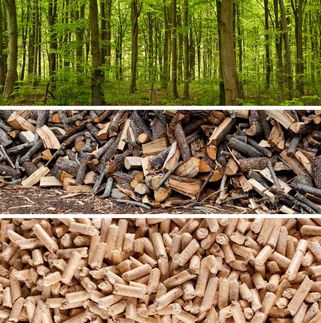Carbon Capture Strategy Could Lead to Emission-Free Cars
Researchers at the Georgia Institute of Technology have developed a strategy to capture, store and eventually recycle carbon from vehicles to prevent the pollutant from finding its way from a car tailpipe into the atmosphere. Georgia Tech researchers envision a zero emission car, and a transportation system completely free of fossil fuels.
Technologies to capture carbon dioxide emissions from large-scale sources such as power plants have recently gained some impressive scientific ground, but nearly two-thirds of global carbon emissions are created by much smaller polluters - automobiles, transportation vehicles and distributed industrial power generation applications (e.g., diesel power generators).
The Georgia Tech team's goal is to create a sustainable transportation system that uses a liquid fuel and traps the carbon emission in the vehicle for later processing at a fueling station. The carbon would then be shuttled back to a processing plant where it could be transformed into liquid fuel. Currently, Georgia Tech researchers are developing a fuel processing device to separate the carbon and store it in the vehicle in liquid form.
"Presently, we have an unsustainable carbon-based economy with several severe limitations, including a limited supply of fossil fuels, high cost and carbon dioxide pollution," said Andrei Fedorov, associate professor in the Woodruff School of Mechanical Engineering at Georgia Tech and a lead researcher on the project. "We wanted to create a practical and sustainable energy strategy for automobiles that could solve each of those limitations, eventually using renewable energy sources and in an environmentally conscious way."
Georgia Tech's near-future strategy involves capturing carbon emissions from conventional (fossil) liquid hydrocarbon-fueled vehicles with an onboard fuel processor designed to separate the hydrogen in the fuel from the carbon. Hydrogen is then used to power the vehicle, while the carbon is stored on board the vehicle in a liquid form until it is disposed at a refueling station. It is then transported to a centralized site to be sequestered in a permanent location currently under investigation by scientists, such as geological formations, under the oceans or in solid carbonate form.
In the long-term strategy, the carbon dioxide will be recycled forming a closed-loop system, involving synthesis of high energy density liquid fuel suitable for the transportation sector.
The Georgia Tech team has already created a fuel processor, called CO2/H2 Active Membrane Piston (CHAMP) reactor, capable of efficiently producing hydrogen and separating and liquefying CO2 from a liquid hydrocarbon or synthetic fuel used by an internal combustion engine or fuel cell. After the carbon dioxide is separated from the hydrogen, it can then be stored in liquefied state on-board the vehicle. The liquid state provides a much more stable and dense form of carbon, which is easy to store and transport.
Other news from the department science
Most read news
More news from our other portals
See the theme worlds for related content
Topic world Synthesis
Chemical synthesis is at the heart of modern chemistry and enables the targeted production of molecules with specific properties. By combining starting materials in defined reaction conditions, chemists can create a wide range of compounds, from simple molecules to complex active ingredients.

Topic world Synthesis
Chemical synthesis is at the heart of modern chemistry and enables the targeted production of molecules with specific properties. By combining starting materials in defined reaction conditions, chemists can create a wide range of compounds, from simple molecules to complex active ingredients.


























































